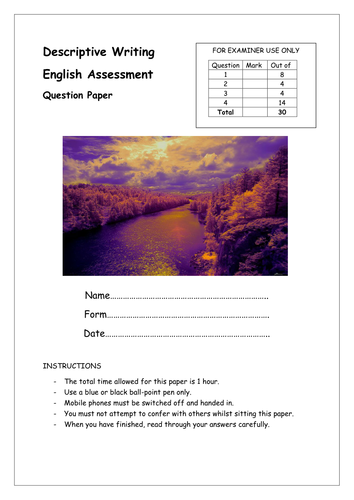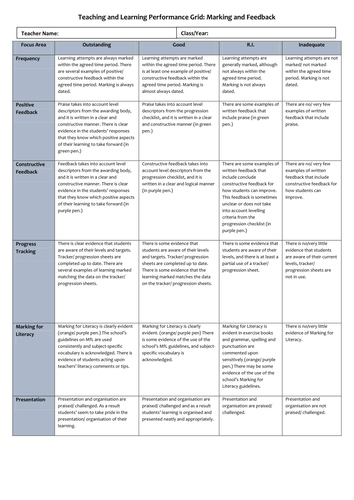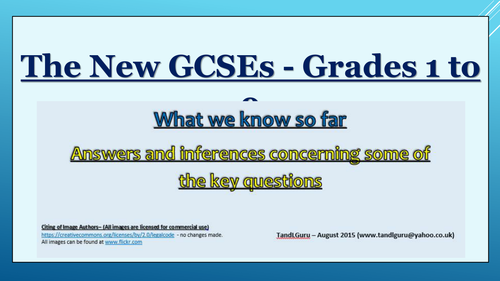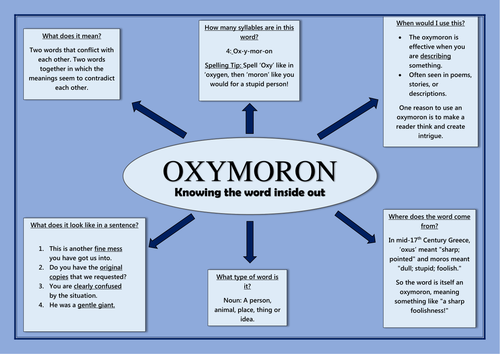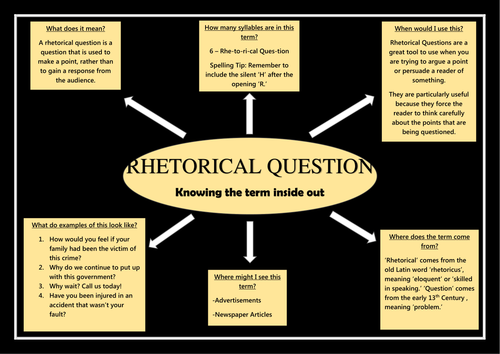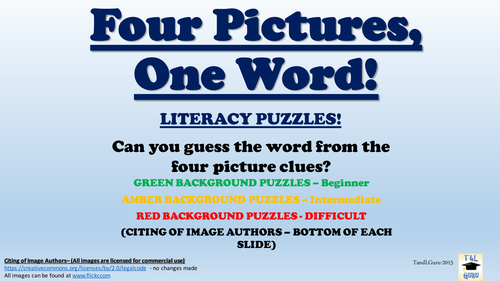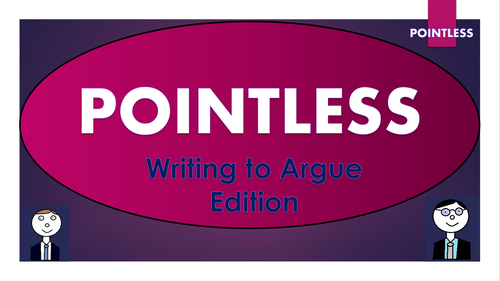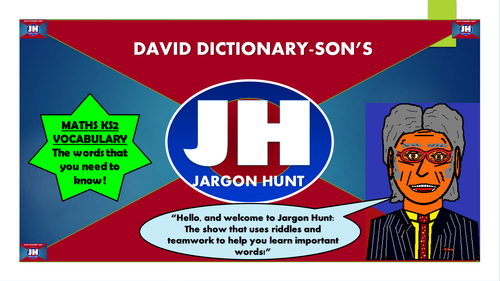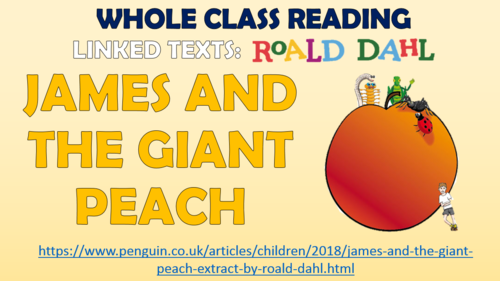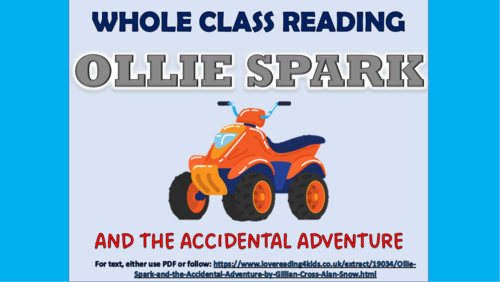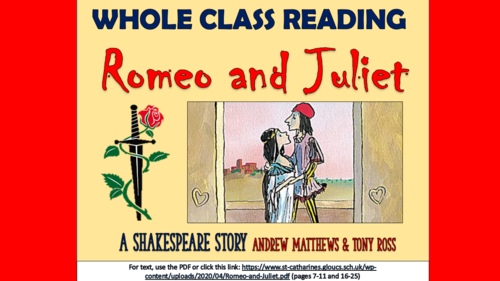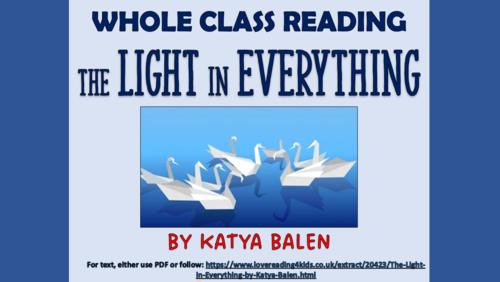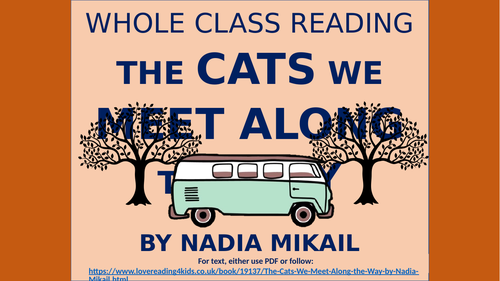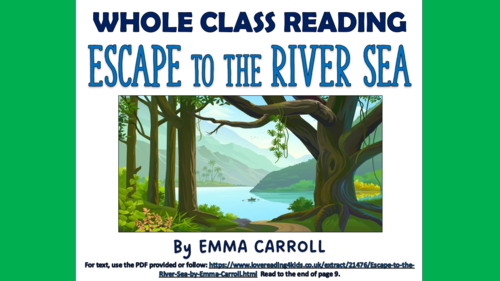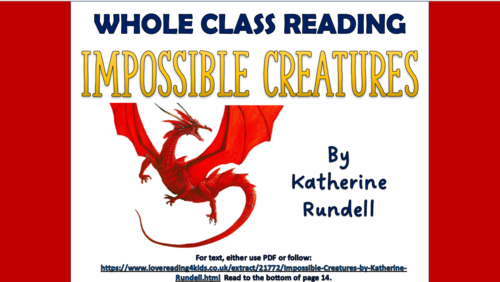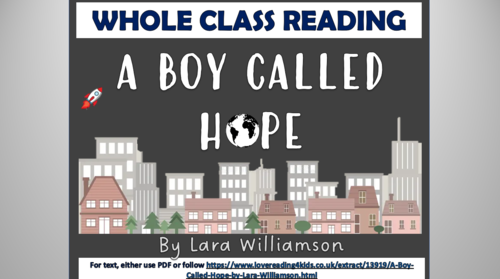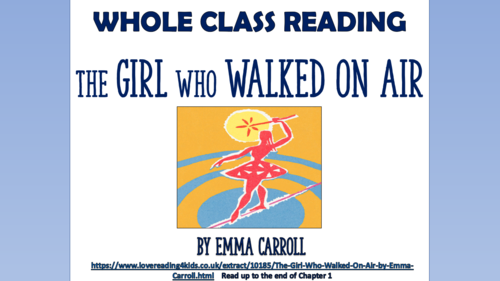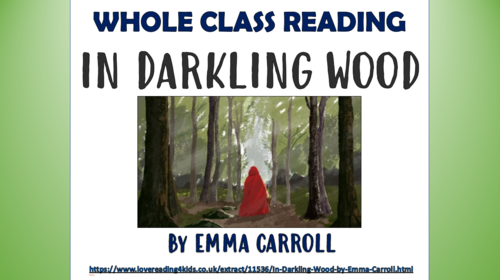
3k+Uploads
1904k+Views
2237k+Downloads
Whole school

Descriptive Writing - Full Assessment including Insert and Mark Scheme
I have recently taught a descriptive writing unit, and devised this assessment to gauge how students descriptive skills have progressed over the term. It includes the question paper, the mark scheme, and the reading insert.
Formal enough to ensure that the students took the assessment seriously, but engaging enough to ensure that all students wanted to complete all of the tasks, (they hate some of the practice exam questions that exam boards provide on the past papers) all of my students seemed to enjoy completing this more than they normally enjoy assessments!
The assessment is designed to gauge students' skill in:
- Defining and giving examples of descriptive devices;
- Identifying descriptive devices in texts;
- Analysing the effect of descriptive writing in a vivid description of a 'Nightmare World.'
- Creating their own descriptive piece about a their own nightmare world.
This lesson can either be bought individually, or as part of the Descriptive Writing Big Bundle (which works out cheaper.)

Marking and Feedback Performance Grid
For use alongside book monitoring/ work scrutiny, this succinct performance grid enables observers to gauge and categorise marking and feedback using OFSTED guidance for effective feedback. The first page of the document provides descriptors of 'outstanding', 'good', 'requires improvement' and 'inadequate' feedback within appropriately considered focus areas, for example: Frequency, Constructive Feedback, Marking for Literacy, etc. Schools that already employ this tool often opt to highlight the descriptors on this page as they complete the scrutiny, thus creating a bigger picture of the strengths and areas for improvement in the feedback observed. This can also be a helpful aid in arriving at an overall judgement, should your school opt to arrive at one. The second page allows observers to further pinpoint and describe the 'www' (what went well) and 'ebi' (even better if) aspects of the feedback, to aid teacher in improving their practice.

New GCSEs Grades 1-9 - Answers to the Key Questions.
I have used this resource to explain the new GCSE changes to other staff, governors, and parents. Feedback has been that it is clear, concise, and answers some of the key questions. In the document, I have addressed:
- What changes have already taken place?
- When do the changes take place?
- How do the new grades equate to the old grades?
- Why are the changes necessary?
- What are the changes to the English GCSE?
- What are the changes to the Maths GCSE?
- How will school performance now be judged?
Also attached is a visual representation of how the new GCSE grades map onto the old GCSE grades. Within the PowerPoint are a number of links to key information provided by the DfE and OFQUAL. Hope this helps!

Descriptive Devices - Knowing the Words Inside Out! (Helpsheets, Posters and Worksheet Templates)
These colourful, engaging and informative posters/ help-sheets are perfect to help your students gain a broad and deep understanding of each of the key descriptive devices, thus vastly improving their textual analysis and enhancing their creative writing attempts.
Each sheet displays the key word in the middle, and then answers some of the key questions surrounding the words, including:
- What does it mean?
- How many syllables does it have?
- What are examples of it?
- How do I spell it?
- When would I use this?
- What type of word is it?
- Where does the word come from?
There are sheets for: Similes, Metaphors, Hyperbole, Adjectives, Adverbs, Alliteration, Onomatopoeia, Verbs, Personification, and Verbs. These can be used as help-sheets as students write (my students love this) or blown up to A3 to use as classroom posters.
I have also provided blank templates for each word, so that students can fill in the everything that they know about the words themselves, which makes for an excellent starter, plenary, or recap activity.

Pointless - Building Varied Verbs Edition
Based on the popular game show 'Pointless', this resource is perfect for use as a starter activity, plenary, or revision tool. Editable, so that you can change to any other topic or change the questions/answers. Containing almost 30 slides of sound clips, engaging visuals, and suitably challenging questions, this resource is effective at both promoting engagement and enhancing learning.
There are several full rounds of questions to build students' understanding of verbs, including:
1. Finding synonyms of dull verbs
2. Defining verbs
3. Unscrambling anagrams of verbs
4. Finding the most complex and interesting verbs
The nature of the game ensures that this resource can challenge students of all levels.

Persuasive Devices - Knowing the Words Inside Out! (Helpsheets, Poster, and Worksheet Templates)
These colourful, engaging and informative posters/ help-sheets are perfect to help your students gain a broad and deep understanding of each of the key persuasive devices, thus vastly improving their textual analysis and enhancing their persuasive/argumentative writing attempts.
Each sheet displays the key word in the middle, and then answers some of the key questions surrounding the words, including:
- What does it mean?
- How many syllables does it have?
- What are examples of it?
- How do I spell it?
- When would I use this?
- What type of word is it?
- Where does the word come from?
There are sheets for: Statistics, Personal Pronouns, Anecdotes, Rhetorical Questions, Repetition, Colloquial Language, Connectives, List of Three, Imperatives, Emotive Language. These can be used as help-sheets as students write (my students love this) or blown up to A3 to use as classroom posters.
I have also provided blank templates for each word, so that students can fill in the everything that they know about the words themselves, which makes for an excellent starter, plenary, or recap activity.

Four Pictures, One Word!
This is a great resource for lesson starters, building literacy across the curriculum, plenaries, or simply for fun. Based upon the popular mobile app, this visually engaging activity is highly effective at promoting engagement and getting students thinking about words - many of whom seem to love playing the game on their phones! It is particularly useful for Literacy practitioners who are looking to expand students' vocabularies and/or raise the subject of homonyms.
There are a range of challenges:
Green = Beginner level
Amber= Intermediate level
Red = Expert level
The document is easily editable, so you can also add in your own pictures and challenges. Also, all of the pictures used are licensed for commercial use, and all authors are cited.

Pointless: Writing to Argue Edition
Based on the popular game show 'Pointless', this resource is perfect for use as a starter activity, plenary, or revision tool. Editable, so that you can change to any other topic or change questions. Containing almost 30 slides of sound clips, engaging visuals, and suitably challenging questions, this resource is effective at both promoting engagement and enhancing learning. There are several full rounds of questions to build learning of Writing to Argue:
1. Identifying Arguing/ Persuasive Devices
2. Defining Arguing Devices
3. Identifying and Unscrambling Text Types and Jobs that use Structured Arguments
4. Naming Opposing Connectives (to help structure arguments.)
The nature of the game ensures that this resource can challenge students of all levels.

Jargon Hunt - KS2 Maths - Building Literacy through Riddles and Teamwork!
Welcome to Jargon Hunt! This engaging and exciting activity is perfect for building students' literacy skills; helping them to understand key Maths vocabulary through cryptic rhyming riddles and teamwork.
Once the game is introduced and the rules are shared (on the presentation) students are given a riddle card and an answer card. The only catch is that their answer card does not match their riddle! Through reading their riddle to others, and allowing others to read their riddles to them, students learn the Maths vocabulary as prescribed for teaching at KS2 in the new National Curriculum.
Provided in this pack are:
- 30+ slide presentation, hosted by David Dictionary-son, who walks students through the game in a step-by-step fashion.
-Class-size pack of riddle cards and answer cards. They simply need to printed on card, or printed on paper and laminated.
This resource is a valuable tool for helping students to comprehend the words that they will need to understand in the New Curriculum, build valuable speaking and listening skills, and also have lots of fun!
This resource can be bought alone. or as a part of a Jargon Hunt KS2 bundle (English, Maths, and Science) for just £1 more!

Land Art/ Earth Art Project - Lesson 4 - Evaluating!
This engaging and purposeful series of lessons enables children to gradually develop towards creating their own land art/ Earth sculptures. The resources were originally created to guide children towards creating art in the school grounds and a local forest, but the resources can easily be adapted to fit your own particular local landscapes.
This fourth and final lesson helps children to evaluate their land art through:
-Thinking about what they planned to achieve in my land art;
-Considering the process and outcome of my land art;
-Weighing up the strengths and development areas within my land art piece.
Included is a clearly-structured evaluation template and an eye-catching and comprehensive PowerPoint presentation - in combination these resources guide children towards producing thorough and thoughtful evaluations of their land art compositions.
These lessons were originally created for children in year 2, but may be adapted for slightly older and younger year groups.

James and the Giant Peach - Whole Class Reading Session!
This whole class reading session aims to develop children’s comprehension of the opening chapters of Roald Dahl’s James and the Giant Peach.
It contains a link to the online chapter (on the first slide). This is followed by a series of activities aiming to develop children’s retrieval, explanation, inference, prediction and summarising skills. It also contains a vocabulary check immediately after the extract is read to clarify any unfamiliar/ difficult language.
The tasks are comprised of quick-check questions, solo thinking, pair/ group discussions and deeper thinking activities.
The session is best suited for children in years 2-3, although with minor adaptations it could feasibly be used with slightly younger and older year groups.

Ollie Spark and the Accidental Adventure - KS2 Whole Class Reading Lesson!
This whole class reading session aims to develop students’ comprehension skills through reading and interpreting the opening section of Ollie Spark and the Accidental Adventure.’
The resource pack includes the extract needed (as a PDF) and a clear and well presented PowerPoint, guiding the teacher and learners through the various activities. The reading is followed by a series of activities aiming to develop students’ retrieval, explanation, inference, sequencing and summarising skills. A vocabulary check helps to secure students’ understanding of any new or unfamiliar language.
The tasks are comprised of quick-check questions, solo thinking, pair/ group discussions and deeper thinking activities.
The session is best suited for learners in years 4-6, although with minor adaptations it could feasibly be used with slightly younger and older year groups.

Romeo and Juliet - KS2 Whole Class Reading Comprehension Lesson!
This whole class reading session aims to develop children’s fluency and comprehension skills whilst reading key extracts from an age-appropriate adaptation of Romeo and Juliet (the pages needed for the lesson are provided).
The extract is from the ‘Shakespeare Stories: Romeo and Juliet’ adaptation by Andrew Matthews and Tony Ross. The sections of the story that children read are when Romeo and Juliet meet at the ball (Act 1 Scene 5) and the balcony scene (Act 2 Scene 1).
The reading is followed by a series of activities aiming to develop children’s VIPERS skills: vocabulary, inference, prediction, explanation, retrieval, sequencing and summarising. It also contains a vocabulary check immediately after the extract is read to clarify any unfamiliar/ difficult language.
The tasks are comprised of quick-check questions, solo thinking, pair/ group discussions and deeper thinking activities. The text to read is provided in both PDF and Word format.
The session is best suited for children across KS2 - the lesson has been tried and tested with children in years 4 to 6. Hope that you find it useful!

The Light in Everything - Whole Class Reading Session!
This whole class reading session aims to develop students’ comprehension skills through reading and interpreting the opening section of Katya Balen’s ‘The Light in Everything.’
The resource pack includes the extract needed and a clear and well presented PowerPoint, guiding the teacher and learners through the various activities. The reading is followed by a series of activities aiming to develop students’ retrieval, explanation, inference, sequencing and summarising skills. A vocabulary check helps to secure students’ understanding of any new or unfamiliar language.
The tasks are comprised of quick-check questions, solo thinking, pair/ group discussions and deeper thinking activities.
The session is best suited for learners in years 4-5, although with minor adaptations it could feasibly be used with slightly younger and older year groups.

The Cats We Meet Along the Way - Reading Comprehension Lesson!
This whole class reading session aims to develop students’ comprehension skills through reading and interpreting the opening section of Nadia Mikail’s ‘The Cats We Meet Along the Way.’
The resource pack includes the extract needed and a clear and well presented PowerPoint, guiding the teacher and learners through the various activities. The reading is followed by a series of activities aiming to develop students’ retrieval, explanation, inference, sequencing and summarising skills. A vocabulary check helps to secure students’ understanding of any new or unfamiliar language.
The tasks are comprised of quick-check questions, solo thinking, pair/ group discussions and deeper thinking activities.
The session is best suited for learners in years 7-8, although with minor adaptations it could feasibly be used with slightly younger and older year groups.

The Renaissance Period - Whole Class Reading Session!
This whole class reading session aims to develop children’s fluency and comprehension skills through reading an interesting non-fiction introduction to the Rnaissance period. It includes information about what the Renaissance period was, how it started and the impact that it had upon the world. The text is two A4 sides in length.
The reading is followed by a series of activities aiming to develop children’s VIPERS skills: vocabulary, inference, prediction, explanation, retrieval, sequencing and summarising. This is provided on a visually-attractive, easy-to-follow PowerPoint presentation. It also contains a vocabulary check immediately after the extract is read to clarify any unfamiliar/ difficult language.
The tasks are comprised of quick-check questions, solo thinking, pair/ group discussions and deeper thinking activities. The extract needed is provided in both PDF and Word format.
The session is best suited for children across upper KS2 and lower KS3, I have previously used the resources with children in years 5 and 6.

Impossible Creatures - Whole Class Reading Session!
This whole class reading session aims to develop children’s comprehension skills through reading and interpreting the opening section of Katherine Rundell’s ‘Impossible Creatures.’
The resource pack includes the extract needed and a clear and well presented PowerPoint, guiding the teacher and learners through the various activities. The reading is followed by a series of activities aiming to develop children’s retrieval, explanation, inference, sequencing and summarising skills. A vocabulary check helps to secure children’s understanding of any new or unfamiliar language.
The tasks are comprised of quick-check questions, solo thinking, pair/ group discussions and deeper thinking activities.
The session is best suited for children in years 5-6, although with minor adaptations it could feasibly be used with slightly younger and older year groups.

A Boy Called Hope - Whole Class Reading Session!
This whole class reading session aims to develop children’s comprehension skills through reading and interpreting the opening section of Lara Williamson’s ‘A Boy Called Hope.’
The resource pack includes the extract needed and a clear and well presented PowerPoint, guiding the teacher and learners through the various activities. The reading is followed by a series of activities aiming to develop children’s retrieval, explanation, inference, sequencing and summarising skills. A vocabulary check helps to secure children’s understanding of any new or unfamiliar language.
The tasks are comprised of quick-check questions, solo thinking, pair/ group discussions and deeper thinking activities.
The session is best suited for children in years 5-6, although with minor adaptations it could feasibly be used with slightly younger and older year groups.

The Girl Who Walked on Air - Whole Class Reading Session!
This whole class reading session aims to develop children’s comprehension skills through reading and interpreting the opening section of Emma Carroll’s ‘The Girl Who Walked on Air.’
The resource pack includes the extract needed and a clear and well presented PowerPoint, guiding the teacher and learners through the various activities. The reading is followed by a series of activities aiming to develop children’s retrieval, explanation, inference, sequencing and summarising skills. A vocabulary check helps to secure children’s understanding of any new or unfamiliar language.
The tasks are comprised of quick-check questions, solo thinking, pair/ group discussions and deeper thinking activities.
The session is best suited for children in upper KS2, although with minor adaptations it could feasibly be used with slightly younger and older year groups.

In Darkling Wood - Whole Class Reading Session!
This whole class reading session aims to develop children’s comprehension skills through reading and interpreting the opening section of Emma Carroll’s ‘In Darkling Wood.’
The resource pack includes the extract needed and a clear and well presented PowerPoint, guiding the teacher and learners through the various activities. The reading is followed by a series of activities aiming to develop children’s retrieval, explanation, inference, sequencing and summarising skills. A vocabulary check helps to secure children’s understanding of any new or unfamiliar language.
The tasks are comprised of quick-check questions, solo thinking, pair/ group discussions and deeper thinking activities.
The session is best suited for children in lower KS2, although with minor adaptations it could feasibly be used with slightly younger and older year groups.

